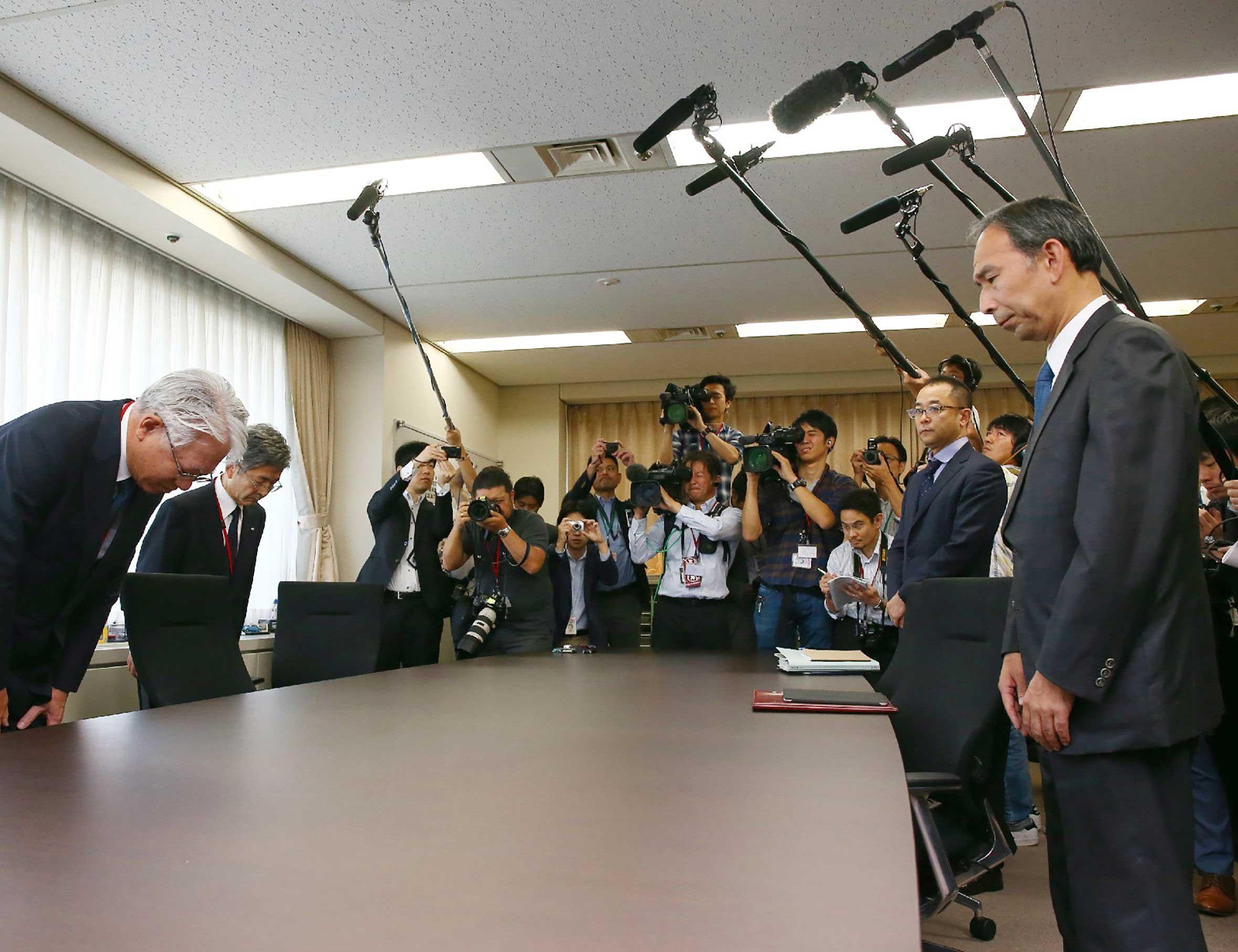Kobe Steel, Nissan scandals tarnish image of Japan Inc
TOKYO

Embarrassing scandals at Kobe Steel and Nissan have tarnished the reputation of Japan Inc for quality, as once-mighty industrial world-beaters battle fierce global competition and shrinking profit margins.
Once again, the image of a corporate boss bowing deeply in apology before the cameras has been splashed across Japan’s newspapers and sparked a fresh bout of national soul-searching.
Kobe Steel’s chief admitted his firm had falsified quality data in products shipped to about 500 clients, including carmaker Toyota, aircraft manufacturers and defence contractors.
The news that the affected parts were also used in Japan’s “Shinkansen” bullet trains deepened the humiliation for the “Made in Japan” brand that was once a byword for quality.
The revelation wiped $1.8 billion off its share price over the past week - a drop of more than 40 percent -- as the scandal deepened and widened to other products such as steel wires, a key company product.
The Kobe Steel news came just days after Nissan recalled more than one million vehicles in Japan after admitting that staff without proper authorization conducted final vehicle inspections before shipping them to dealers.
“Once, the Japanese way of manufacturing won the praise of the world. But now jobs are being outsourced and factories are sent overseas. Things have changed,” said Koji Morioka, professor emeritus at Kansai University.
Intensifying global competition and an unending drive to cut costs have resulted in a situation in developed countries like Japan where workers keep quiet to protect themselves even if they see wrongdoing, added the expert.
“As globalization continues, companies are expanding local production, and emerging economies are becoming ever more competitive,” Morioka said.
The admissions came as the global industry landscape goes through sweeping transformations, experts said.
Costly workers in mature economies like Japan are directly pitted against cheap factory staff in emerging markets in a competition for jobs.
Experienced workers with stable contracts are being replaced by temporary novices, while management demands higher productivity from all employees.
Meanwhile, industry newcomers are taking market share away from traditional corporate giants.
In the steelmaking sector, for example, Indian and Chinese giants have steadily expanded, pressuring their Japanese rivals.
And the Japanese auto manufacturing behemoths have expanded overseas production, rather than exporting vehicles from Japan.
The Kobe Steel and Nissan scandals are the latest in a string of negative headlines for Japanese industry that used to be the envy of the world.
Airbag maker Takata went bankrupt this year after spending years dealing with defective products that were linked to 16 deaths and scores of injuries worldwide.
Mitsubishi Motors last year admitted that it had been falsifying mileage tests for years.
















